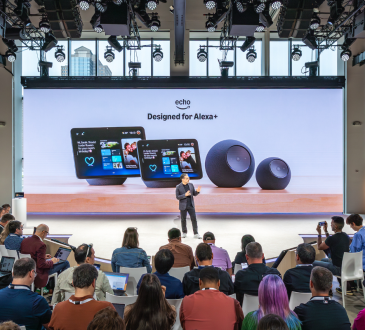OpenAI Launches Safety Routing System and Parental Controls for ChatGPT

OpenAI released a major update to ChatGPT introducing a new safety routing system and parental controls. It’s the latest in a string of safety and inclusivity-related changes for the company since its recent privacy policy announcement. The move is part of OpenAI’s continued pledge to innovate responsibly, ensuring that its AI assistant remains helpful, secure, and accessible to everyone.
The updates come at a time when generative AI-based tools are becoming progressively more incorporated into everyday activities—whether that’s in schools and workplaces, in entertainment, or even personal productivity. Amid this rapid growth, concerns around safety, misinformation, and responsible use have been mounting. OpenAI’s recent updates are a response to those concerns, but they’re also a chance for families and younger users to explore AI in a safer environment.
What the Safety Routing System Does
The heart of the announcement is the safety routing system, a back-end feature that filters and redirects queries in real time. This system is designed to eliminate harmful, offensive, or spammy responses before they reach the user.
Unlike static filters, safety routing works dynamically:
- If someone searches for potentially dangerous content, the system routes the query toward safer responses.
- Instead of issuing a blunt refusal, ChatGPT may offer constructive alternatives or provide factual clarifications.
- The system performs real-time checks to prevent edge cases—seemingly innocent topics that could become unsafe with follow-up questions.
In effect, the safety routing system functions like an AI traffic cop, ensuring conversations don’t veer off course while still allowing for creativity and playfulness.
Why This Matters Now
Generative AI is no longer confined to tech enthusiasts. Today:
- Students use ChatGPT for academic support.
- Professionals rely on it to draft documents.
- Businesses integrate it into workflows.
With such broad adoption, the stakes for safety are higher than ever.
Critics have long worried that AI assistants could produce harmful content—ranging from misinformation on sensitive topics to explicit or unsafe outputs. The safety routing system addresses these concerns by offering a proactive, scalable safety net.
This move also aligns with larger industry shifts. Tech companies face growing scrutiny from regulators and advocacy groups demanding stronger guardrails around AI. By introducing safety routing, OpenAI positions itself as a leader in responsible AI deployment.
Introducing Parental Controls
In addition to the safety routing system, OpenAI also announced parental control support for ChatGPT—a feature requested by both parents and educators.
Key Capabilities of Parental Controls:
- Content filters to restrict sensitive topics.
- Usage limits to manage screen time.
- Interaction logging for selected categories.
For example, parents may allow ChatGPT to assist with science, history, or language learning, but restrict access to mature or inappropriate topics.
OpenAI emphasized that these controls were developed with input from child-safety experts and family advocacy groups, aiming to balance educational enrichment with online safety.
This addition also reflects a shift in AI industry focus. Until now, most AI assistants were built with adults in mind, leaving families to navigate usage on their own. With explicit moderation tools, ChatGPT is evolving into a more family-friendly platform.
How the Features Work Together
The safety routing system and parental controls are designed to complement one another rather than operate independently:
- Safety routing applies universally, intercepting harmful queries across all users.
- Parental controls offer additional, customizable oversight for families.
For instance:
- If a child asks a sensitive question, the system routes it safely and enforces parental restrictions.
- For adult users without restrictions, safety routing still provides subtle, system-wide protection.
This layered approach reflects OpenAI’s philosophy: safety should be both universal and customizable.
Industry and Community Reactions
Early feedback has been largely positive:
- Educators and parents welcome safety routing as an overdue step to prevent harmful outputs.
- Parents in particular appreciate parental controls, saying they feel more comfortable allowing children to use ChatGPT for learning.
- Industry analysts view the update as strategic—while rivals race to add flashy features, OpenAI is reinforcing trust with a focus on safety and inclusivity.
However, not all reactions are optimistic:
- Critics argue no system is completely foolproof.
- Some worry about overdependence on AI in education and daily life.
- Others fear overly strict parental controls could limit children’s curiosity.
OpenAI has acknowledged these concerns, emphasizing that the systems are designed to evolve through feedback and real-world usage.
Looking Ahead
OpenAI’s launch of safety routing and parental controls represents more than just a product update—it reflects a vision for AI’s role in society.
The real test will come as users adopt these features:
- Will safety routing balance caution with creativity?
- Can parental controls adapt to diverse family needs?
For now, the updates mark a watershed moment in AI’s progression from experimental novelty to trusted household tool. As ChatGPT enters classrooms, workplaces, and homes, safety and control will matter as much as intelligence and convenience.
Conclusion
The launch of the safety routing system and parental controls underscores a key truth: as AI grows more powerful, it must also become more responsible.
OpenAI’s updates aim not only to address user concerns but also to set a standard for the AI industry. By combining system-wide safeguards with user-level customization, the company is working to ensure AI remains safe, fair, and beneficial for everyone—including children.
As AI continues to evolve, these updates may be remembered as a turning point: the moment when ChatGPT—and AI in general—not only became smarter, but also kinder and more considerate to the humans who rely on it.




